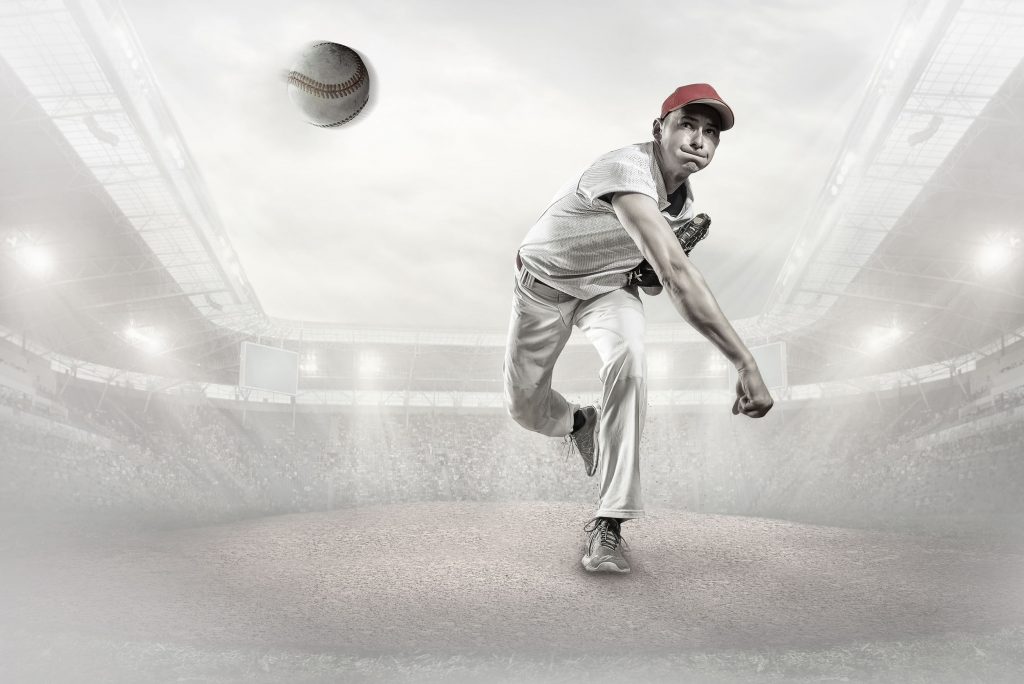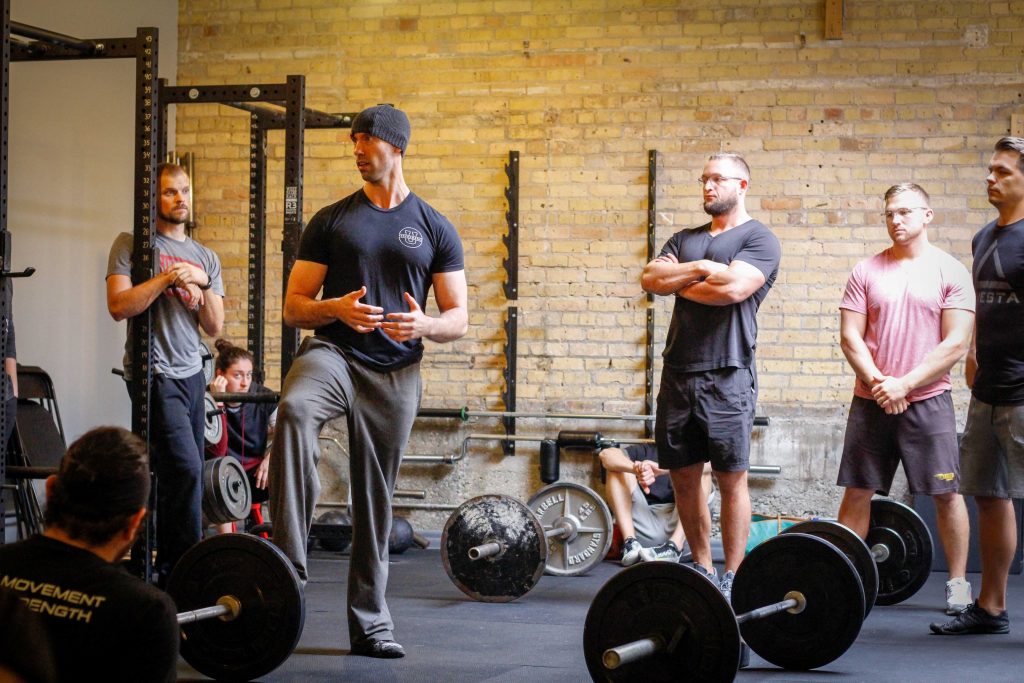A few years ago, while presenting at the NSCA Mid-Atlantic Regional Conference, I mentioned to the crowd that I don’t work with a lot of athletes anymore.
By choice.

Training Athletes vs. General Population Clients
Instead, I explained that currently 90-95% of my clientele are made up of general population clients.
You know, “normal” people.
What’s more, I noted that I actually preferred training them over professional athletes.
There was a cacophony of crickets chirping and cold, blank stares. You would have thought I had just told the crowd I had given up everything just so that I could go walk the land and practice kung-fu.
During the subsequent Q&A later that day I had a handful of people approach to ask if I was okay and whether or not I needed medical attention for saying something so blasphemous me to further elaborate my comment from earlier:
“So, uh, you said you stopped training athletes to work with general population clients.
Like, why?”
Here’s What I Said
Before I peel back that onion, I think it’s important to address the elephant in the room.
I think the overlying credo in the fitness industry is that once you get to the point where you’re working with (professional) athletes or celebrities you’ve somehow “made it.”
You’re elite.
You can now write your memoir.1

Quick Aside: I also feel there’s a tendency for people within the industry to give more credence or credibility to certain certifications over others. For example if someone is a CSCS (Certified Strength and Conditioning Specialist) they’re obviously smarter and more qualified than a lowly CPT (Certified Personal Trainer)….and they can probably walk on water.2
Certifications are great and all (and necessary to some degree), but I guess I fall into the camp that tries not to place too much weight on the letters next to someone’s name, and more so on their experience and overall track record.
I get it: Training Gary from accounting doesn’t attach itself to as much prestige and luster as, say, an NFL player or Zac Efron.
However, as my friend and colleague, Mike Connelly, eloquently stated back in the day:
“We all train people. Whether or not they get paid to play a sport does not change their “peopleness” nor does it impact your status as an elite trainer. You either know what you’re doing or you don’t and there is plenty of both on either side.“
Training professional athletes and actors has its benefits and setbacks, as does training general population clients.
I’ve been fortunate to work with people on both sides of the fence.
I can tell you that throughout my career I’ve been every bit as excited watching one of my female clients nail her first strict, bodyweight chin-up as when I was watching an athlete of mine make his Major League debut.
Fun Tony Factoid: I watched one of my former athletes make his Big League debut the night of my Bachelor party.
Anyways, far be it from me to tell you which is the better fit or more rewarding route to take.
All I can do is speak for myself.
Speaking of which, how about I finally STFU and get to the meat and potatoes of the post.
“Tony, why did you CHOOSE to not work with pro athletes?”
Here’s What I Actually Said
1. You’re not my Mom, you can’t tell me what to do.
2. The truth is I still do train athletes. My previous coaching position was at an institution – Cressey Sports Performance – which is known for working with a metric boat load of professional athletes.
Especially overhead athletes.
So, in effect, me switching gears and not training (professional) athletes at the same abundance was very much a result of that.
I simply am not around them as much compared to the past.
Rest assured, though, if Mike Trout wanted to train at CORE I wouldn’t turn him away….;o)
3. When I decided to leave CSP and open up my own small studio in Boston I knew the demographic I’d be catering to the most would be normal, everyday, all-I-want-to-do-is-to-be-able-to-pick-my-kid-up-and-not-hate-life people.
Partly because of the location of my studio, and partly because that’s what I wanted to do.
Don’t get me wrong: I loved working with athletes – and I still do.
However, as far as absolute joys in my life are concerned, outside of a good tickle fight, a heaping bowl of ice-cream, or rough-housing with my 5-year old, I have always gotten more out of helping “regular peeps” nail their first 2x bodyweight squat or helping someone finally conquer his or her’s chronic low-back pain.

I wanted to get back to former and the joy it brought me.
So that’s what I did.
Bye Felicia.
Besides, I don’t feel there’s any less pedigree of coaching involved at accomplishing any of the things mentioned above compared to improving someone’s VO2 max or vertical jump from 31 to 32 inches.
In fact, this quote from Vince Gabriele sums things up nicely:
“I get more satisfaction helping a level 3 become a level 7, than a level 8 becoming a level 9. The former is so much more rewarding.“
4. Also, if I really wanted to be honest with any young fitness professionals reading:
- There’s more general population clients out there in the world than there are professional athletes. It’s an inevitable mathematical likelihood that, despite how important you feel you are and that only the elite of the elite can (and should) be privy to your superior training methodologies, you may, never, work with professional athletes.
- But if you do, training athletes can provide a level of prestige that can be leveraged to garner more business.3 That said, and I think a lot of gym owners will agree with this, it’s general population clients that pay the rent and often result in more consistent revenue.
Something to think about.
And That’s That
If anything I hope this little rant resonates with those who may struggle with the notion that they’re “less qualified” because they don’t work with athletes , models, actors, or clowns.
That’s a bunch of hogwash.
Maturity in a trainer/coach is revealed in ‘the process of progress’ rather than who’s connected to it.4



